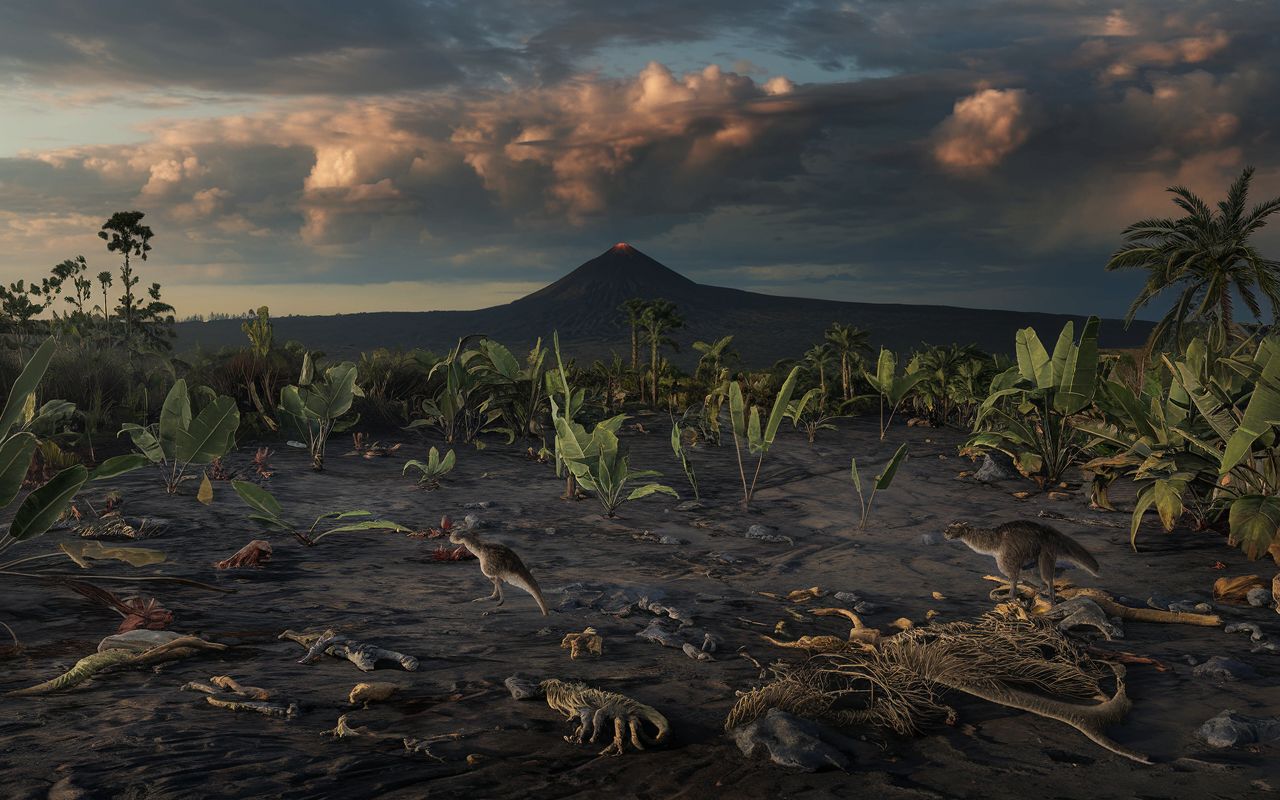Follow us on Google News (click on ☆)
Dinosaurs, mammals, and other species may have survived thanks to unique adaptations.

Around 201 million years ago, Earth experienced a mass extinction. Nearly 76% of species disappeared. Until now, this cataclysm was thought to be linked to climate warming induced by the intense volcanism of the period.
However, a recent study published in PNAS points to a different culprit. The researchers suggest that the initial volcanic episodes caused a sudden cooling, creating a volcanic winter. During these early eruptions, sulfuric particles were dispersed into the atmosphere, blocking the Sun's rays. This phenomenon led to a rapid and drastic cooling of the planet.
Unlike CO2, which accumulates slowly and ultimately causes significant warming, sulfates act almost immediately. Thus, it was this cooling phase, before the warming began, that proved fatal to many tropical species unable to quickly adapt to such a sudden change.
Dinosaurs, then small often feathered creatures, were better equipped to endure this temperature drop. Their survival would later allow them to thrive during the Jurassic period.
The survival of mammals is also noteworthy. Small and often able to shelter, they managed to evade the most severe consequences of this hostile climate.
Scientists base their observations on rocks from the Central Atlantic Magmatic Province (CAMP). These samples reveal a specific magnetic orientation, confirming eruptions concentrated over periods of less than 100 years.
These findings redefine the role of volcanic winters in mass extinctions. While CO2 causes long-term warming, sulfates, in contrast, create immediate cooling. A short-lived phenomenon but with devastating consequences.
What is a volcanic winter?
A volcanic winter is a period of global cooling caused by large volcanic eruptions. This phenomenon occurs when volcanoes eject vast amounts of aerosols, such as sulfates, into the upper atmosphere.
These sulfuric particles reflect part of the sunlight before it reaches the Earth's surface. The result: a sudden global temperature drop that can last for several years.
Volcanic winters can cause severe ecological disruptions. Some species die due to cold temperatures, while others, better adapted, survive and thrive in the transformed ecosystems.